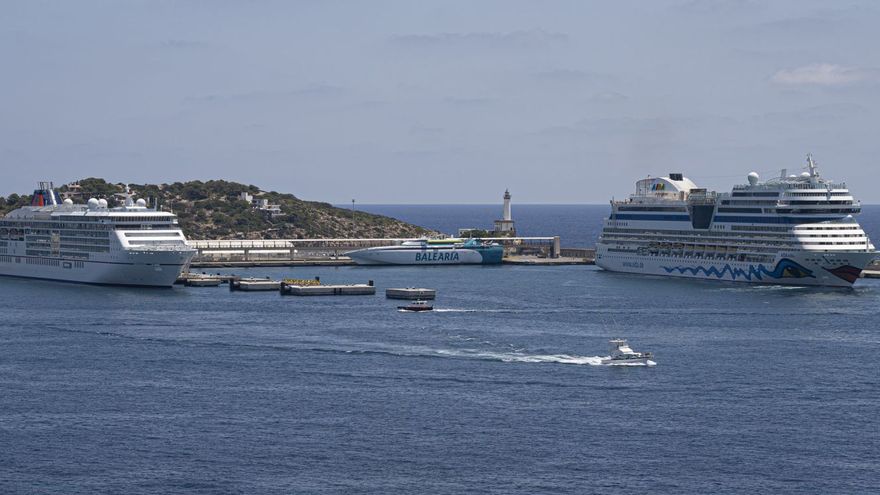The record tourist season is also now reflected in the marine passenger traffic data (non cruise passengers) in the port of Ibiza, which is already above the data recorded in 2019, before the covid pandemic. The same is true for the port of La Savina, on Formentera. In the first five months of the year, including the month of the start of the season, the number of passengers was only 1.8% of that recorded in the same period three years ago, then with the start of the summer months, the balance was then tipped and the activity of the two main ports of the Pitiusas already exceeds that of the period prior to the health crisis.
Thus, in July, the latest data published by the Balearic Port Authority, the number of regular line passengers counted at the es Botafoc maritime station (both outbound and return) stood at 465,909, 12% more than in the same period last year and one point more (13%) compared to 2019. On a cumulative basis for the year, the increase compared to the precovid period was just over 4%. In addition, the number of passenger vehicles passing through the port of Vila in July was 54,401, almost 60% more than in 2019 (34,109).
At the port of La Savina, a total of 367,050 passengers were recorded in July, 7% more than in 2021 and 6.2% more than in 2019. The increase in private vehicle traffic stood at 72% compared to three years ago.
However, there is a curious fact: while maritime passenger traffic on regular lines shows unmistakable signs that it has left the pandemic behind, the same is not true for cruise ships. Last July 44,134 cruise passengers were registered and 125,471 in the cumulative record for the year. In contrast, in the same month of 2019 the cruise ships that docked at es Botafoc transferred a total of 80,297 people and 197,620 in the sum of the first seven months of that year. Thus, the port of Ibiza lost 45% of cruise passengers this July compared to the same period of the year precovid and 36.5% with the accumulated 2019. This drop causes the overall increase in passenger traffic (regular lines plus cruises) to be 3.5%.
The repercussion of covid for cruises
A spokesman for the Balearic Port Authority (APB) pointed out that this drop in the number of cruise passengers could be explained by the fact that the cruise companies still apply reductions of passengers on their ships due to covid.
For its part, Cruise Lines International Association (CLIA), employers of cruise lines, admits that in addition to “passenger restrictions” by the measures taken against the pandemic may also have influenced the fact that “marketing” of travel is activated “12 and 18 months in advance” and as last year “restrictions were lifted later in Spain, the window of opportunity for sales was smaller.” “This would mostly affect the first months of the year. It could be [the explanation for the drop in the figures] the combination of both circumstances,” said the consulted sources of CLIA.
For the full article, please visit Diario de Ibiza website here.

